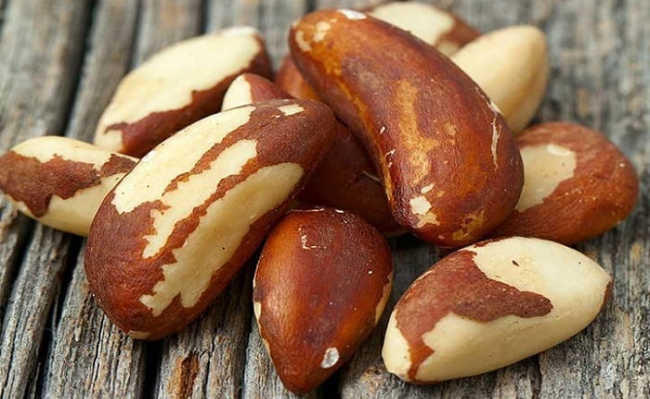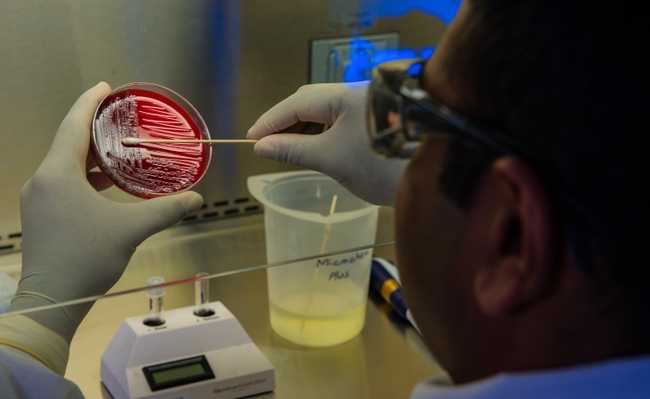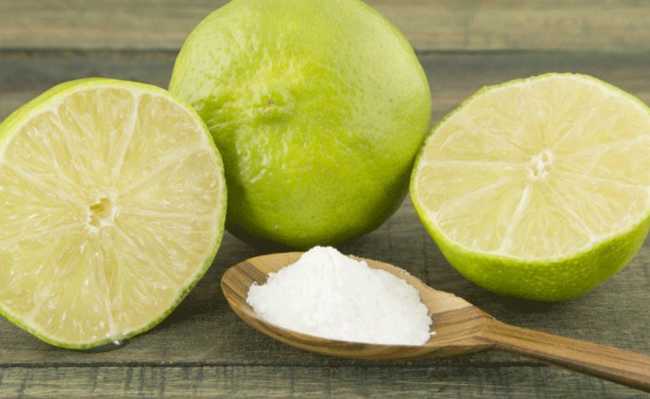Six benefits of persimmon
Persimmon is loaded with antioxidants and vitamin C, it is good for the heart and eyes

Edited and resized image of Healthline
Persimmon is a reddish-orange fruit known for its sweet taste and tomato-likeness. It can be eaten fresh, dried or cooked and is commonly used in jellies, drinks, pies and puddings. But what many people don't know is that persimmon can provide many health benefits, such as reducing inflammation, preventing cardiovascular disease and providing antioxidants. Check out:
1. It's loaded with nutrients
Although small, a persimmon has an impressive amount of nutrients. Each persimmon (about 168 grams) contains:
- Calories: 118
- Carbohydrates: 31 grams
- Protein: 1 gram
- Fat: 0.3 grams
- Fiber: 6 grams
- Vitamin A: 55% of the RDI
- Vitamin C: 22% of the RDI
- Vitamin E: 6% of the RDI
- Vitamin K: 5% of the RDI
- Vitamin B6 (pyridoxine): 8% of the RDI
- Potassium: 8% of the IDR
- Copper: 9% of the IDR
- Manganese: 30% of the IDR
Persimmon is also a good source of thiamine (B1), riboflavin (B2), folate, magnesium and phosphorus. It is high in fiber and low in calories, which makes it an ally in preventing obesity.
- Magnesium: what is it for?
- What are high fiber foods
Just one persimmon contains more than half the recommended intake of vitamin A - a fat-soluble vitamin essential for immune function, vision and fetal development (see study about it here).
In addition to vitamins and minerals, persimmon contains a wide variety of plant compounds, including tannins, flavonoids and carotenoids, which have antioxidant, anti-inflammatory and can prevent chronic diseases (see study about it here).
The leaves of the persimmon tree are also rich in vitamin C, tannins and fiber, substances that can be used through the consumption of your tea (see study about it here).
- Flavonoids: what they are and what are their benefits
2. Excellent source of antioxidants
Antioxidants are substances that help prevent or delay cell damage by neutralizing oxidative stress, a process triggered by unstable molecules called free radicals.
- Antioxidants: what are they and in what foods to find them
- What are free radicals?
Oxidative stress has been linked to certain chronic diseases, including heart disease, diabetes, cancer and neurological conditions such as Alzheimer's disease (see study about it here).
Diets rich in flavonoids (which are antioxidants) found in high concentrations in persimmon skin and pulp, have been associated with lower rates of heart disease, age-related mental decline, and lung cancer (see study about it here).
Persimmon is also rich in carotenoid antioxidants such as beta-carotene, a pigment found in many colorful fruits and vegetables.
Some studies have shown that there is a correlation between diets high in beta-carotene and a lower risk of heart disease, lung cancer, colorectal cancer, and metabolic disease.
In addition, a study of more than 37,000 people found that those with a high intake of beta-carotene had a significantly reduced risk of developing type 2 diabetes.
- Diabetes: what it is, types and symptoms
3. Good for the heart
Heart disease is the leading cause of death worldwide and affects the lives of millions of people.
Fortunately, most heart disease can be prevented by reducing risk factors such as an unhealthy diet.
The powerful combination of nutrients found in persimmon makes it an excellent choice for the heart.
Persimmons contain flavonoid antioxidants, including quercetin and kaempferol.
A study of more than 98,000 people found that those with the highest intake of flavonoids had 18% fewer deaths from heart-related problems compared to those with the lowest intake.
According to another study, diets high in flavonoids help lower blood pressure, LDL cholesterol (considered “bad”) and inflammation, factors that determine heart health.
Also, the tannins present in some types of persimmon can help reduce pressure. Other animal studies have shown that tannic acid and gallic acid, both found in persimmons, are effective in reducing high blood pressure, a risk factor for heart disease (see studies 1, 2, 3).
- Does altered cholesterol have symptoms? Know what it is and how to prevent it
4. Reduces inflammation
Heart disease, arthritis, diabetes, cancer and obesity are all linked to chronic inflammation. Fortunately, choosing foods rich in anti-inflammatory compounds can help reduce the risk of developing these diseases.
Persimmon is an excellent source of vitamin C, containing 20% of the recommended daily intake.
- What is vitamin C and why is it important?
Vitamin C helps protect cells from free radical damage by fighting inflammation. It works by donating an electron to unstable molecules, neutralizing free radicals and preventing them from causing damage.
- Foods rich in vitamin C
When the body has inflammation, it produces C-reactive protein and interleukin-6. An eight-week study of 64 obese people found that supplementation with 500 mg of vitamin C twice daily significantly reduced levels of C-reactive protein and interleukin-6.
In addition, other studies have linked increased vitamin C intake to a reduced risk of inflammatory conditions such as heart disease, prostate cancer, and diabetes (see studies here: 4, 5, 6).
In addition to carotenoids and flavonoids, the vitamin E present in persimmon helps fight inflammation (see studies about it here: 5, 6, 7).
5. It is rich in Fiber
Excess cholesterol, especially LDL cholesterol, can increase your risk of heart disease, stroke, and heart attack.
Foods high in soluble fiber, such as fruits and vegetables, can help reduce high cholesterol levels by helping the body to excrete excessive amounts of it.
One study found that adults who consumed biscuit bars containing persimmon fiber three times a day for 12 weeks had a significant decrease in LDL cholesterol compared to those who ate bars that did not contain persimmon fiber.
Fiber is also important for regular bowel movements and can help reduce high blood sugar levels.
- What is constipation?
Foods high in soluble fiber, such as persimmon, slow down carbohydrate digestion and sugar absorption, which helps prevent blood sugar spikes.
- What is the Glycemic Index?
A study of 117 people with diabetes showed that increased consumption of soluble dietary fiber led to significant improvements in blood sugar levels.
In addition, fiber helps to feed the “good” bacteria in the intestine, which can positively impact your digestive and general health and characterizes persimmon as a prebiotic food (see study about it here: 8).
- What are prebiotic foods?
6. Good for the eyes
Persimmon provides plenty of vitamin A and antioxidants that are essential for eye health, providing 55% of the recommended vitamin A intake.
Vitamin A is important to keep the conjunctival and corneal membranes functioning properly. In addition, it is an essential component of rhodopsin, a protein needed to maintain normal vision (see study about it).
Persimmons also contain lutein and zeaxanthin, which are carotenoid antioxidants that protect the eyes from damage caused by blue light. Understand more about this topic in the article: "Blue light: what it is, benefits, damages and how to deal".
These substances are found at high levels in the retina, a layer of light-sensitive tissue at the back of the eye.
Diets high in lutein and zeaxanthin can reduce the risk of certain eye diseases, including age-related macular degeneration, a disease that affects the retina and can cause vision loss (see study about it here).
A study of more than 100,000 people found that those who ingested higher amounts of lutein and zeaxanthin had a 40% lower risk of developing age-related macular degeneration compared to those who consumed less.
Adapted from Healthline and PubMed










